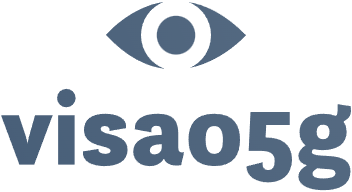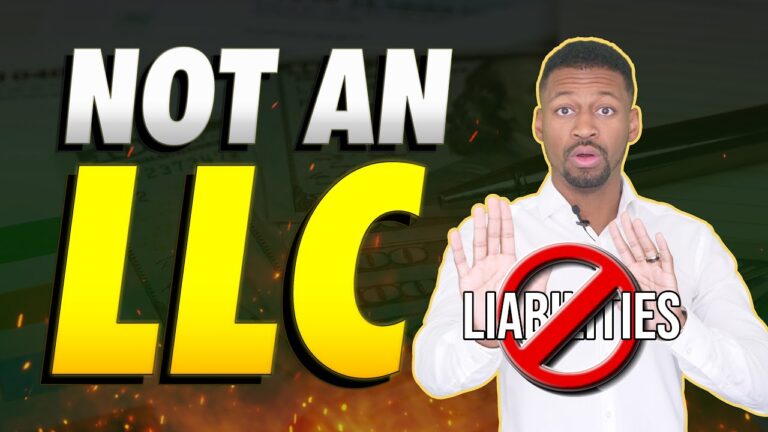Anúncios
Running a business inherently involves various risks, making business insurance an essential safeguard for any enterprise.
Business insurance is specifically designed to protect against potential liabilities. This article examines the different types of business insurance, including general liability and property insurance, and outlines how to assess individual business needs.
Furthermore, it offers guidance on selecting appropriate coverage, understanding associated costs, and effectively managing policies to ensure the security of the business. This analysis aims to provide valuable insights on how to best protect one’s investment.
Anúncios
Understanding Business Insurance
Understanding business insurance is essential for every business owner, as it plays a vital role in protecting assets and ensuring financial stability in the event of unforeseen circumstances.
A comprehensive insurance policy can offer coverage for various risks, including liability, property damage, and employee-related incidents. By effectively managing risk through customized coverage, business owners can safeguard their interests and maintain operational continuity.
Furthermore, a thorough understanding of the different coverage options and policy terms is necessary to navigate the complexities associated with business insurance.
What is Business Insurance and Why is it Important?
Business insurance constitutes a contractual agreement between a business owner and an insurance provider, designed to offer financial protection against various risks, including liability and property damage.
This contract acts as a vital safety net, protecting enterprises from unforeseen events that may result in significant financial hardship. By investing in comprehensive coverage options, such as liability insurance and property insurance, business owners can mitigate the consequences of accidents, natural disasters, or legal claims.
In the absence of adequate coverage, businesses may face catastrophic losses that not only jeopardize their financial stability but also impede their ability to recover and succeed in a competitive marketplace. Therefore, securing appropriate business insurance is a critical step toward ensuring longevity and sustainability in operations.
Types of Business Insurance
Comprehending the various types of business insurance is crucial for any business owner aiming to safeguard their enterprise against a range of risks, including general liability and property damage.
General Liability Insurance
General liability insurance is an essential element of business insurance, offering protection against claims related to bodily injury and property damage.
This type of insurance not only mitigates the financial repercussions that may result from lawsuits or settlements but also plays a critical role in optimizing the claims process. By maintaining comprehensive general liability coverage, companies can benefit from customized claims assistance, ensuring they receive prompt support and guidance throughout any claims situation.
This financial safeguard provides peace of mind, enabling business owners to concentrate on growth and operational activities rather than the uncertainties posed by legal liabilities or unforeseen incidents.
Property Insurance
Property insurance serves to protect business assets from various risks, including fire, theft, and natural disasters, making it an essential coverage option for any business owner.
Understanding the different coverage limits and types of policies is critical to ensuring that valuable investments and properties are adequately safeguarded.
For example, general property insurance typically encompasses coverage for buildings and equipment, whereas specialized policies may be required for specific items such as inventory or machinery.
Additionally, some business owners may opt to include business interruption insurance, which compensates for lost income during unforeseen disruptions.
By carefully assessing their individual needs, business owners can tailor their insurance plans to ensure compliance with legal requirements while effectively minimizing potential financial losses in the event of unexpected circumstances.
Professional Liability Insurance
Professional liability insurance, commonly referred to as errors and omissions insurance, is essential for businesses that deliver professional services, as it offers protection against claims of negligence or insufficient work.
This type of insurance acts as a critical safety net, enabling professionals to navigate the complexities of their respective industries without the ongoing concern of potentially devastating financial repercussions resulting from legal disputes.
Clients may assert that the services provided did not meet their expectations or fulfill contractual obligations, which can lead to expensive litigation. Having professional liability insurance in place not only provides access to legal defense but also covers settlements or judgments when claims arise.
By protecting against potential legal ramifications, this insurance allows professionals to concentrate on delivering high-quality services, thereby fostering trust and cultivating long-lasting relationships with their clients.
Assessing Your Business Insurance Needs
Assessing business insurance needs is a crucial step for every business owner.
This process entails conducting a comprehensive insurance needs analysis to identify potential risks and determine appropriate coverage options.
Factors to Consider
When assessing business insurance needs, it is essential to consider several factors, including risk factors, industry requirements, and potential coverage gaps.
A comprehensive understanding of these elements is crucial, as it allows business owners to identify specific vulnerabilities unique to their operations. For example, the nature of the industry significantly influences the types of coverage required; a construction firm will possess distinct insurance needs compared to a technology startup.
Compliance with local regulations can dictate minimum coverage amounts and specific types of insurance policies necessary for legal protection. By evaluating these industry standards, one can ensure not only adequate protection but also alignment with requirements that help avoid costly penalties.
Regular reviews of these factors are vital to maintaining a relevant and robust insurance portfolio.
Shopping for Business Insurance
Shopping for business insurance can be a complex process; however, through diligent comparison of quotes and the assistance of a knowledgeable insurance broker, business owners can identify customized coverage options that align with their specific requirements.
Tips for Finding the Right Coverage
Finding the appropriate business insurance coverage necessitates thorough research and a comprehensive understanding of the available coverage options in the market.
This process can often appear daunting, particularly for individuals who are not well-acquainted with the various policies and terminology. Engaging with insurance agents can prove to be a valuable resource, as they can provide insights into the specific nuances of different types of coverage.
It is prudent to discuss specific needs, risks, and potential coverage gaps with these professionals. Additionally, obtaining multiple quotes is essential; comparing them side-by-side not only aids in identifying the most cost-effective option but also facilitates a clearer understanding of what is included in each policy.
It is important to remember that the ideal coverage should adequately protect the business while being tailored to its unique circumstances.
Cost of Business Insurance
The cost of business insurance can vary considerably based on several factors, including the type of coverage, the insurance provider, and the specific risks associated with the business.
Factors that Affect Premiums
Premium costs for business insurance are influenced by various factors, including the insurer’s assessment of risk and the selected coverage limits.
For example, businesses operating in high-risk industries, such as construction or hospitality, can anticipate paying higher premiums due to the increased likelihood of claims.
The specific coverage limits chosen significantly impact the overall cost; while lower limits may reduce premium expenses, they could also expose the business to greater vulnerability in the event of a substantial loss.
Additionally, the nature of a business’s operations—encompassing its size, location, and employee count—plays a crucial role in how insurers calculate these rates. By carefully evaluating these interconnected elements, businesses can make more informed decisions regarding their insurance requirements.
Managing and Updating Your Business Insurance
Managing and updating business insurance is essential to ensure that coverage remains aligned with current business needs, particularly during the renewal process.
Reviewing and Renewing Policies
Reviewing and renewing policies is a fundamental responsibility for every business owner. This process addresses potential coverage gaps and ensures compliance with evolving regulations.
By dedicating time to re-evaluate existing insurance agreements, business owners can identify areas where their coverage may be insufficient or outdated. It is imperative to examine any changes in regulations that could impact current policies, as well as to assess the company’s growth and the emergence of new risks.
Conducting a comprehensive assessment requires the collection of all policy documents, consultation with an insurance advisor, and identification of any discrepancies. Ensuring that each policy aligns with the unique needs of the business can result in significant savings while providing reassurance during uncertain times.
Frequently Asked Questions
What types of business insurance should I consider?
There are several types of business insurance that you should consider to protect your business, including general liability insurance, property insurance, and professional liability insurance.
How do I determine the amount of insurance coverage I need?
The amount of insurance coverage you need will depend on several factors, such as the size and type of your business, industry regulations, and potential risks. It’s best to consult with an insurance agent to assess your specific needs.
Can I save money on business insurance?
Yes, there are several ways to save money on business insurance. One way is to bundle multiple types of insurance with one provider. You can also implement risk management strategies to reduce your insurance premiums.
Do I need business insurance if I work from home?
Yes, even if you work from home, you should still consider getting business insurance. Your homeowner’s insurance may not cover business-related incidents, so it’s important to have separate coverage for your business.
What happens if I don’t have business insurance?
If you don’t have business insurance and a claim is made against your business, you may be personally liable for any damages or losses. This could result in significant financial burden and even put your personal assets at risk.
How do I find a reputable business insurance provider?
To find a reputable business insurance provider, it’s important to do your research and compare quotes from multiple companies. You can also ask for recommendations from other business owners or consult with a licensed insurance agent.






